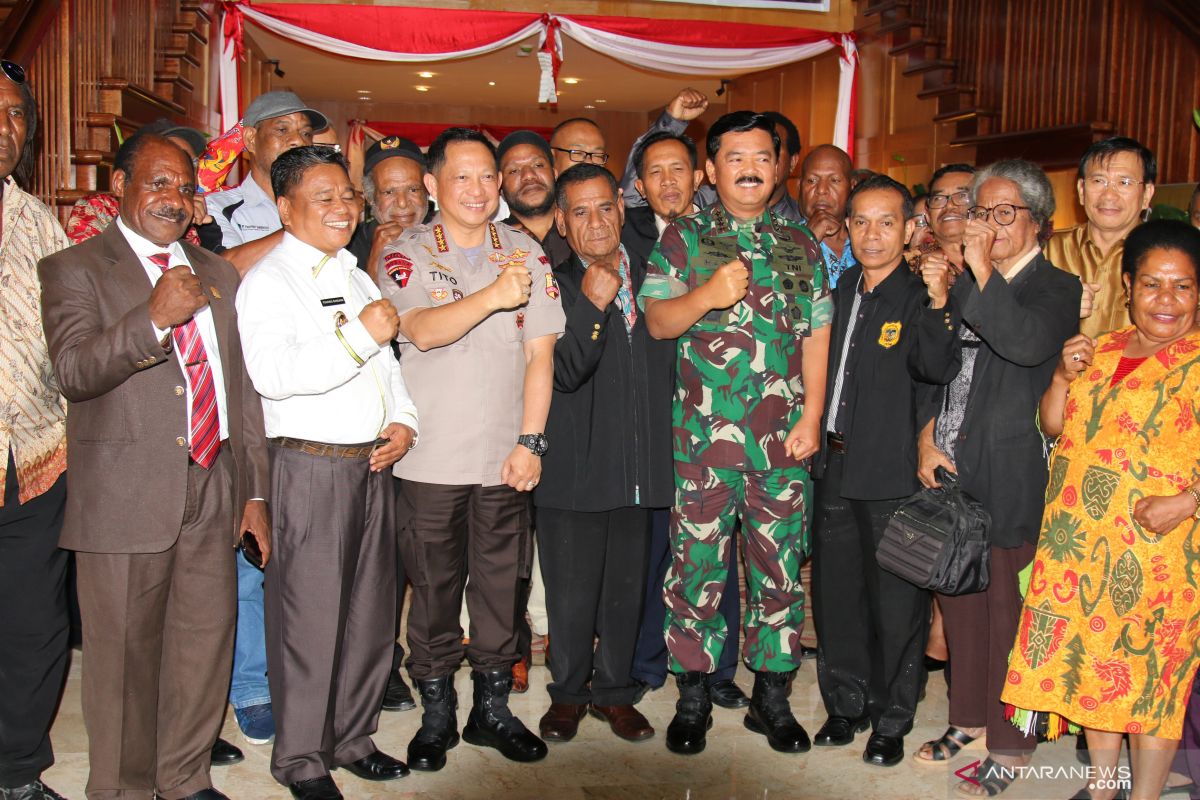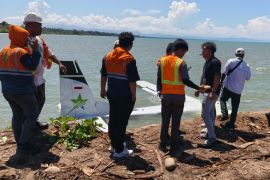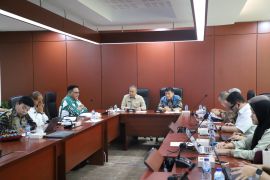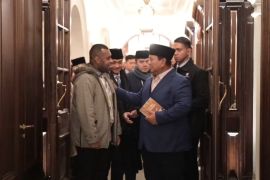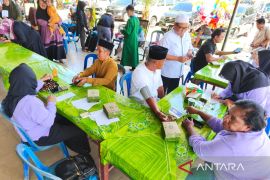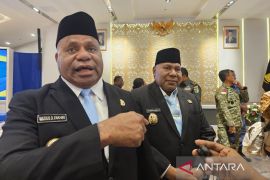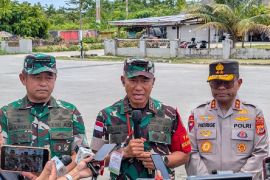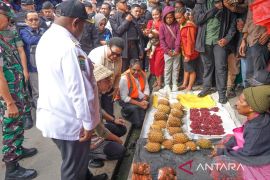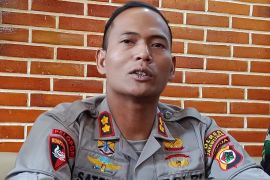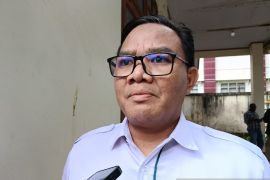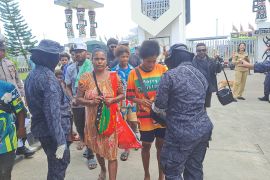This time, the violence occurred in Deiyai District, which is located about 500 km away from Jayapura, the capital city of Papua Province, amid a noisy rally staged by more than a thousand native Papuan residents to protest the Surabaya incident.
Related news: Three killed in riot in Deiyai District
The demonstration, which ended with a deadly attack on the Indonesian security personnel, occurred a day after Indonesian Military (TNI) Commander, Air Chief Marshall Hadi Tjahjanto, and National Police Chief, Gen. Tito Karnavian, visited Biak Numfor District.
During their brief working visit, Hadi and Karnavian held a dialogue with several representatives of the Papuan customary communities at the VIP room of the Manuhua Air Force Base in Biak.
The dialogue, aimed at gaining a clear insight into the aspirations of local community leaders, took place after native Papuans in Papua and West Papua staged a series of rallies to protest against the alleged act of racism against Papuan students in Surabaya.
Related news: Military, police chiefs hold closed-door meeting with Papuan figures
The dialogue itself ended smoothly, and Hadi Tjahjanto thanked the Papuan customary communities in Biak for their commitment to preserving the integrity of the Unitary State of the Republic of Indonesia.
"I thank the people of Biak for their commitment to maintaining Indonesia's integrity and security of the community members so that the continuation of development programs, and government services to the people can be ensured," he told journalists.
Meanwhile, in Jakarta, tens of Papuan students and youth also staged a rally echoing their demand for Indonesia to allow the Papuan people to conduct a referendum to end what they called acts of "racism and discrimination" against the Papuans.
Echoing the agenda of separatism, they focused their demonstration in front of the Indonesian Army Headquarters and near the State Palace in Central Jakarta.
Regarding the Deiyai incident, Papua Police Chief, Inspector General Rudolf Rodja, explained that at first, the rally that some 100 people staged in front of the district office went on peacefully.
However, this peaceful protest then turned into a violent one, following the arrival of at least a thousand people. Many of them attacked an army vehicle, and forcibly took ten SS-1 assault rifles from the car along with the loaded magazines, he said.
The demonstrators assaulted and killed an army soldier, Second Sergeant Rikson, with arrows and machetes.
With the assault rifles forcibly taken from the army vehicle, several armed protesters also opened fire on the security personnel who were securing the rally. An exchange of fire occurred, Rodja said.
As a result of this, three people died and five army and police personnel sustained injuries, he added.
In connection with the Surabaya incident, Air Chief Marshall, Hadi Tjahjanto, said that the legal process against two TNI officers who had allegedly used racist slurs against Papuan students in Surabaya, East Java, is underway.
The officers being investigated in connection with this Surabaya case are Major NHI, commander of the Surabaya 0831/02 Regional Military Command, and a village supervisory non-commissioned officer (Babinsa), he said.
Whatever mistakes the army personnel had committed on duty would consequently be sanctioned, Tjahjanto said.
The Surabaya incident has triggered anger among native Papuans inside and outside the provinces of Papua and West Papua.
On August 19, several thousand people in Manokwari, West Papua Province, and Jayapura, Papua Province, had also vociferously protested over this alleged racist action.
A local parliamentary building in Manokwari was set ablaze during the demonstration. The rioters also set fire to tires in several parts of the city and the main streets.
Due to the seriousness of this Surabaya incident, National Mandate Party (PAN) patron, Amien Rais, has appealed to the central government to tackle pressing issues in the provinces of Papua and West Papua.
"Over the past several days, we have been shaken up by the turmoil in Papua and West Papua," he remarked in Jakarta on August 23, 2019.
While conversing with journalists on the sidelines of a ceremony marking PAN's 21st anniversary, Rais said in no mean terms that the government must not undermine the problems in these two easternmost provinces.
Indonesia should take a cue from the big nations, such as the Soviet Union and Yugoslavia that had borne witness to disintegration despite their economy, military, intelligence, and police being relatively powerful.
Hence, he put forth a suggestion to the government to seek solutions to problems afflicting the provinces of Papua and West Papua rather than going ahead with its policy on relocating the capital city to Kalimantan Island.
Rais expressed deep concern over witnessing foreign interventions in Papuan issues, while affirming that the government should adopt a multi-dimensional approach in resolving them.
The deep concern of Amien Rais represents the feelings of a majority of Indonesians who absolutely disagree with all forms of racism and discrimination against any Indonesian citizen from diverse ethnic groups, including the native Papuans.
However, they also disagree with those posing threats to the Unitary State of the Republic of Indonesia's national sovereignty and integrity through their separatist movements. Now, the central government is faced with the challenge to resolve this problem with dignity. Related news: Two Surabaya TNI officers questioned for racist slurs
Related news: Indonesian soldier shot by separatist succumbs to injuries
EDITED BY INE
Editor: Fardah Assegaf
Copyright © ANTARA 2019
